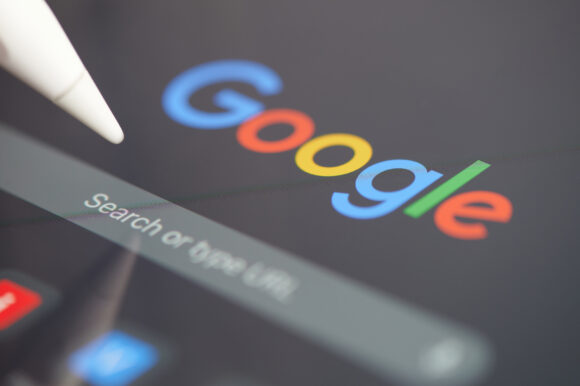Google won’t have to sell its Chrome browser, a judge in Washington said on Tuesday, handing a rare win to Big Tech in its battle with U.S. antitrust enforcers, but ordering Google to share data with rivals to open up competition in online search.
Google parent Alphabet’s shares were up 7.2% in extended trading on Tuesday as investors cheered the judge’s ruling, which also allows Google to keep making lucrative payments to Apple that antitrust enforcers said froze out search rivals. Apple shares rose 3%.
U.S. District Judge Amit Mehta also ruled Google could keep its Android operating system, which together with Chrome help drive Google’s market-dominating online advertising business.
The ruling results from a five-year legal battle between one of the world’s most profitable companies and the U.S., where antitrust regulators and lawmakers have long questioned Big Tech’s market domination. Mehta ruled last year that Google holds an illegal monopoly in online search and related advertising.
But the judge approached the job of imposing remedies on Google with “humility,” he wrote, pointing to competition created by artificial intelligence companies since the case began.
“Here the court is asked to gaze into a crystal ball and look to the future. Not exactly a judge’s forte,” Mehta wrote.
While sharing data with competitors will strengthen rivals to Google’s advertising business, not having to sell off Chrome or Android removes a major concern for investors who view them as key pieces to Google’s overall business.
Google faces a major threat from increasingly popular AI tools including OpenAI’s popular ChatGPT chatbot, which are already eroding Google’s dominance. If allowed to access the data Google is required to share, AI companies could bolster their development of chatbots and, in some cases, AI search engines and web browsers.
“The money flowing into this space, and how quickly it has arrived, is astonishing,” Mehta wrote, saying AI companies are already better placed to compete with Google than any search engine developer has been in decades.
Deepak Mathivanan, an analyst for Cantor Fitzgerald, said the data-sharing requirements pose a competitive risk to Google but not right away.
“It will take a longer period of time for consumers to also embrace these new experiences,” he said.
U.S. antitrust enforcers are considering their next steps, Assistant Attorney General Gail Slater said on X.
Google said in a blog post it was worried data sharing “will impact our users and their privacy, and we’re reviewing the decision closely.”
Google has said previously that it plans to file an appeal, which means it could take years before the company is required to act on the ruling. The case is likely to end up in the Supreme Court.
“Judge Mehta is aware that the Supreme Court is the likely final destination for the case, and he has chosen remedies that stand a good chance of acceptance by the Court,” said William Kovacic, director of the competition law center at George Washington University.
BILLIONS IN PAYMENTS
The ruling was also a relief for Apple and other device and Web browser makers, whom Mehta said can continue to receive advertising revenue-sharing payments from Google for searches on their devices. Google pays Apple $20 billion annually, Morgan Stanley analysts said last year.
Banning the payments is even less necessary amid the rise of AI, Mehta wrote, where products such as OpenAI’s ChatGPT “pose a threat to the primacy of traditional internet search.”
The ruling also made it easier for device makers and others who set Google search as a default to load apps created by Google’s rivals, by barring Google from entering exclusive contracts.
Google itself had proposed loosening those agreements, and its most recent deals with device makers Samsung Electronics and Motorola and wireless carriers AT&T and Verizon allow them to load rival search offerings.
BIG TECH CRACKDOWN
In addition to the case over search, Google is embroiled in litigation over its dominance in other markets.
The company recently said it will continue to fight a ruling requiring it to revamp its app store in a lawsuit won by “Fortnite” maker Epic Games.
And Google is scheduled to go to trial later this month to determine remedies in a separate case brought by the Justice Department where a judge found the company holds illegal monopolies in online advertising technology.
The Justice Department’s two cases against Google are part of a larger bipartisan crackdown by the U.S. on Big Tech firms, which began during President Donald Trump’s first term and includes cases against Meta Platforms, Amazon and Apple.
Topics Google
Was this article valuable?
Here are more articles you may enjoy.



 CFC Owners Said to Tap Banks for Sale, IPO of £5 Billion Insurer
CFC Owners Said to Tap Banks for Sale, IPO of £5 Billion Insurer  Insurance Broker Stocks Sink as AI App Sparks Disruption Fears
Insurance Broker Stocks Sink as AI App Sparks Disruption Fears  World’s Growing Civil Unrest Has an Insurance Sting
World’s Growing Civil Unrest Has an Insurance Sting  Preparing for an AI Native Future
Preparing for an AI Native Future 

